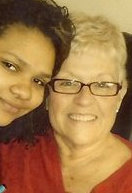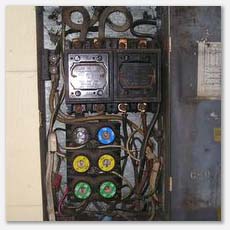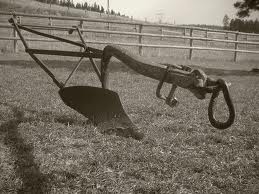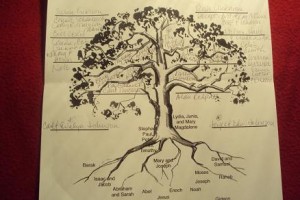My friend Carole was visiting me in the Chicago ‘burbs a few years ago, and we were grocery shopping together. As we urged our loaded cart toward the exit door, another woman maneuvered her cart in front of ours, slipping out first. I didn’t think much of it, but that move made a mark on Carole. She shook her head and said, “I’m glad I live in North Carolina. People are actually friendly there.”
On the way home we talked about the head-down, rushing-around mood of most big cities. People are overloaded with commitments, running late continually and thinking elsewhere while pushing shopping carts. Carole, originally from the Chicago area too, has never succumbed to such cold behavior. For example, she’s friendly with the check-out girls where she shops, and they love to see her coming. She remembers their names, asks about their lives, and lifts their spirits with her laughter.
Today I got a chance to be Carole but threw it away. Shopping for fuses at Home Depot, I turned into the electrical aisle and saw an elderly man planted exactly in front of what I needed to buy. He was studying the small fuse boxes through bifocals and looked like he’d been at it for a while. Leaning on his shopping cart with both elbows, he had one foot propped on the bottom bar and a box of fuses in each hand.
I lingered at the other end of the aisle to give him a chance to move, but he didn’t. Finally I rolled my cart up to his, hoping to quickly reach around him for my fuses and be gone. He smiled brightly and said, “Boy, this stuff is confusing. And the print is mighty small.”
I managed a mini-smile with an “un-huh” but zeroed in on the shelf.
“What are you looking for?” he said.
“30’s.”
“Well, here you go then,” he said, extending one of his boxes toward me. “These are the last 30’s. I’ll take one, and you can have the other.”
He was being Carole. I was being a jerk.
Scripture has a great deal to say about being kind, first by detailing God’s kindness toward us, and second by lauding people who are kind to each other. Kindness is listed as one of the fruits of the Spirit in Galatians 5 and ought to be pouring out of every Christian. If I dodge opportunities, I’m in trouble. As a matter of fact, it’s worse than that.
Because God has exhibited the ultimate kindness in extending salvation to me, I ought to be jumping at every chance to be kind to others. If I don’t, it’s bad news:
“…Hezekiah’s heart was proud, and he did not respond to the kindness shown him; therefore the Lord’s wrath was on him.” (2 Chronicles 32:25)
Learning that it’s a bigger deal than I thought, I want to be more like Carole… and the man at Home Depot. After offering his box of fuses to me, a box he’d probably planned to buy himself, he said, “I’ve been to three other stores this morning, and this price is the best one. You won’t find a better deal.”
(…additional credit for his wanting to give one to me.)
I tried to refuse but ended up receiving his two-part gift: fuses and kindness. This stranger had shared what was rightfully his, had pleased God whether he knew it or not, and had taught me how to be Carole.
I wonder how many more tutoring sessions I’ll need before I finally get kind.
“ ‘I am the Lord, who exercises kindness, justice and righteousness on earth, for in these I delight,’ declares the Lord.” (Jeremiah 9:24)






